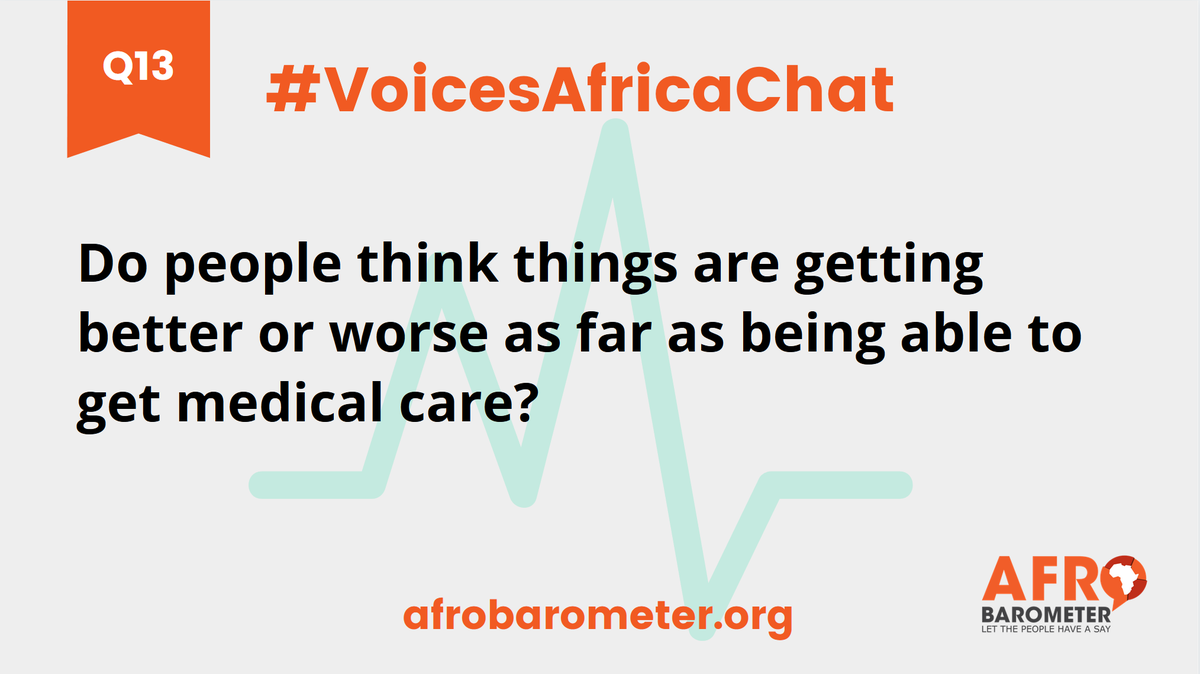April 7th is World Health Day. What’s the significance of this day?
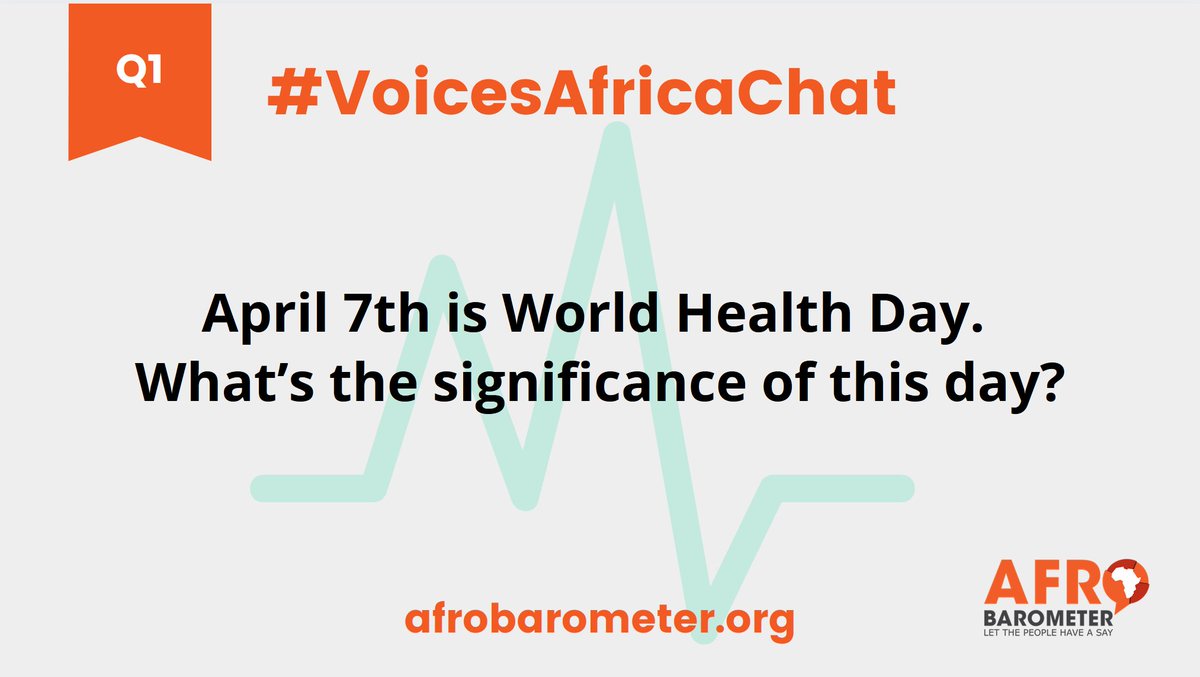
Q2. Afrobarometer reported that 53% of Africans said they went without needed medicines or medical treatment at least once during the 12 months preceding the survey.
What does this mean for the #COVID19 pandemic?
@Gee_Skiti @WHO @ChoonaraShakira @daktari1
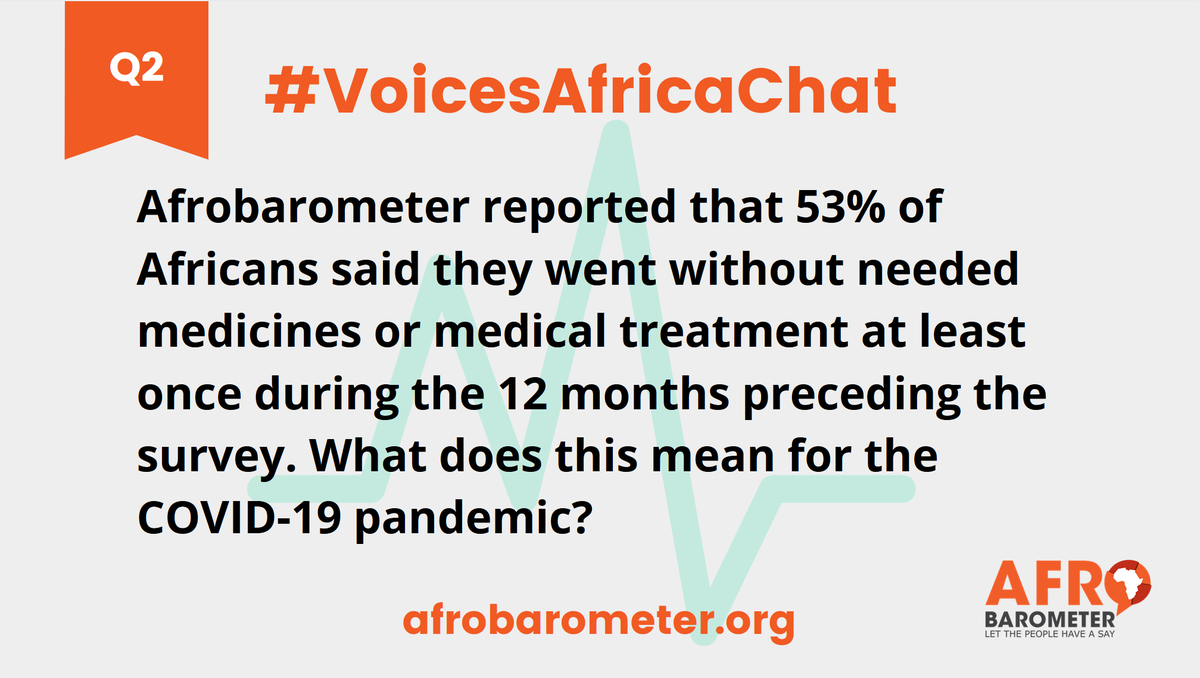
Q3. The latest @Afrobarometer report said that the proportion of people who frequently went without medical care declined by 3 percentage points. Could this indicate an improvement of Africa’s health care systems? @Gee_Skiti
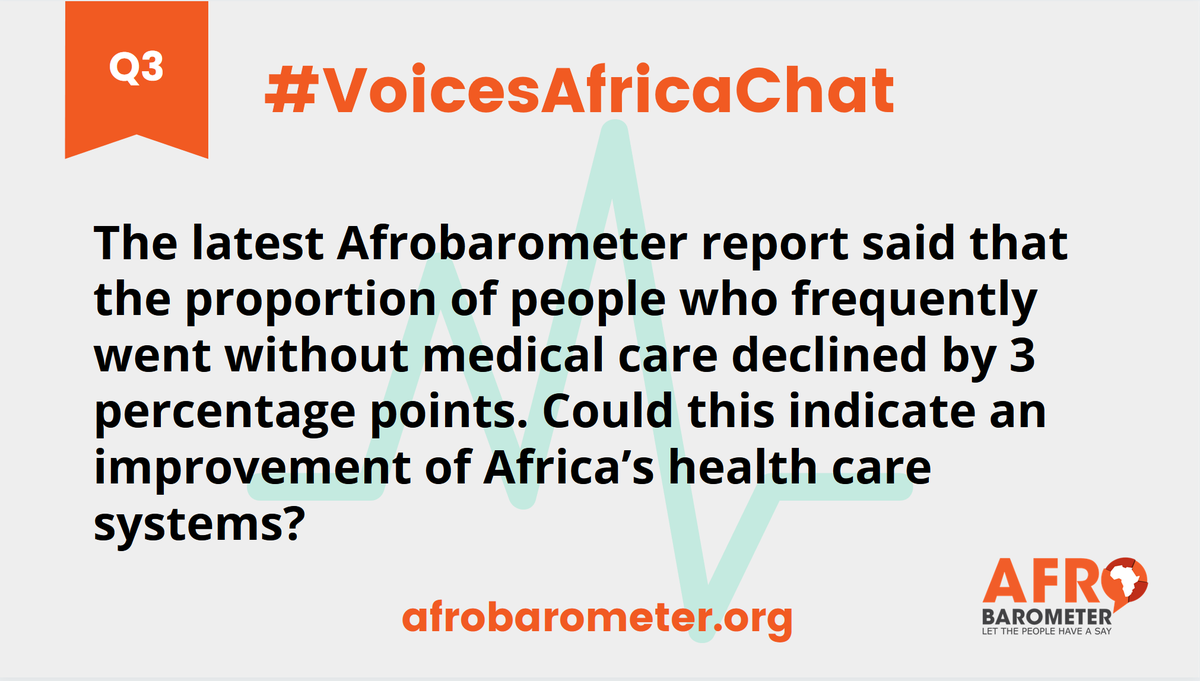
Q4. You say that health ranks second among Africans’ priorities. How do you know that? @Gee_Skiti @wellcometrust @WHOAFRO
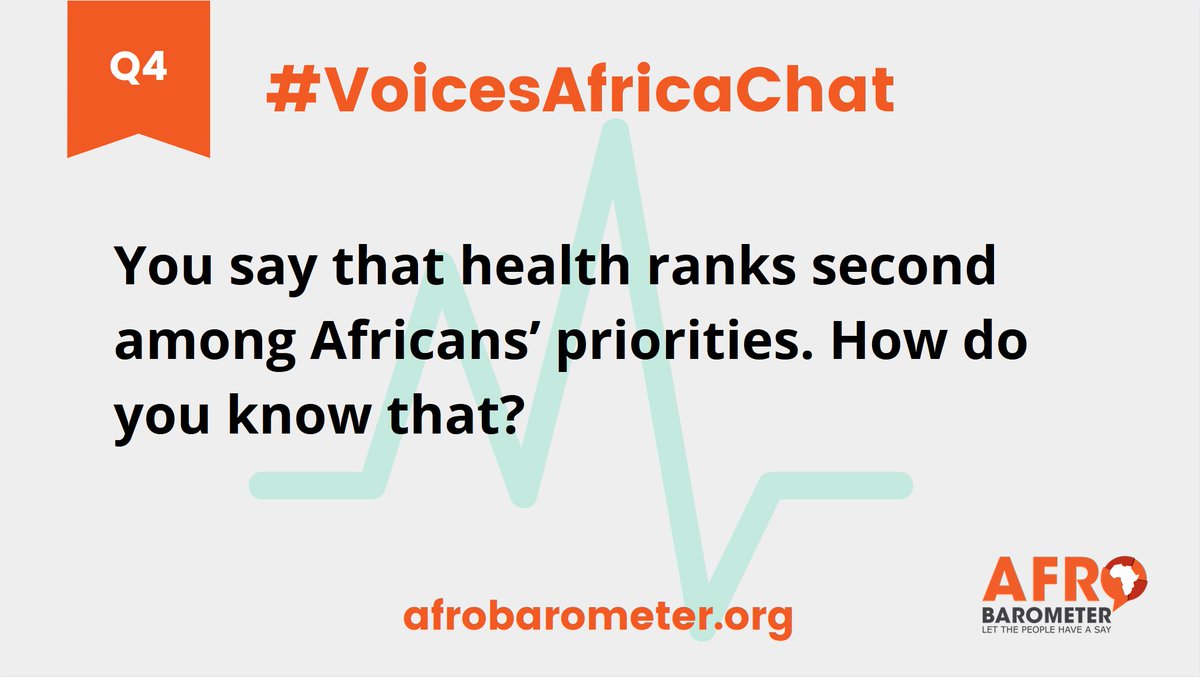
Q6. How does @Afrobarometer data
fit in with the United Nations’ Sustainable Development Goals (#SDGs)? @Gee_Skiti @wellcometrust @WHOAFRO
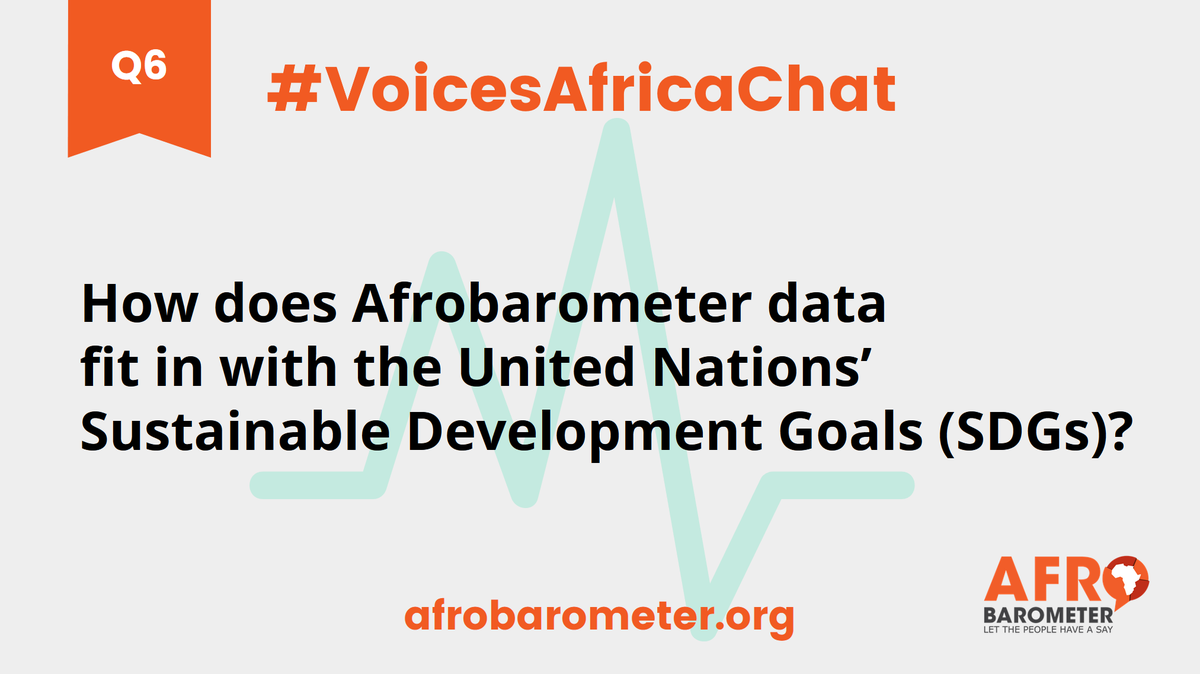
Q7. According to the latest findings, more than half (57%) of Africans have a health clinic within easy walking distance. How could this impact citizens’ access to medical care during this time? @Gee_Skiti
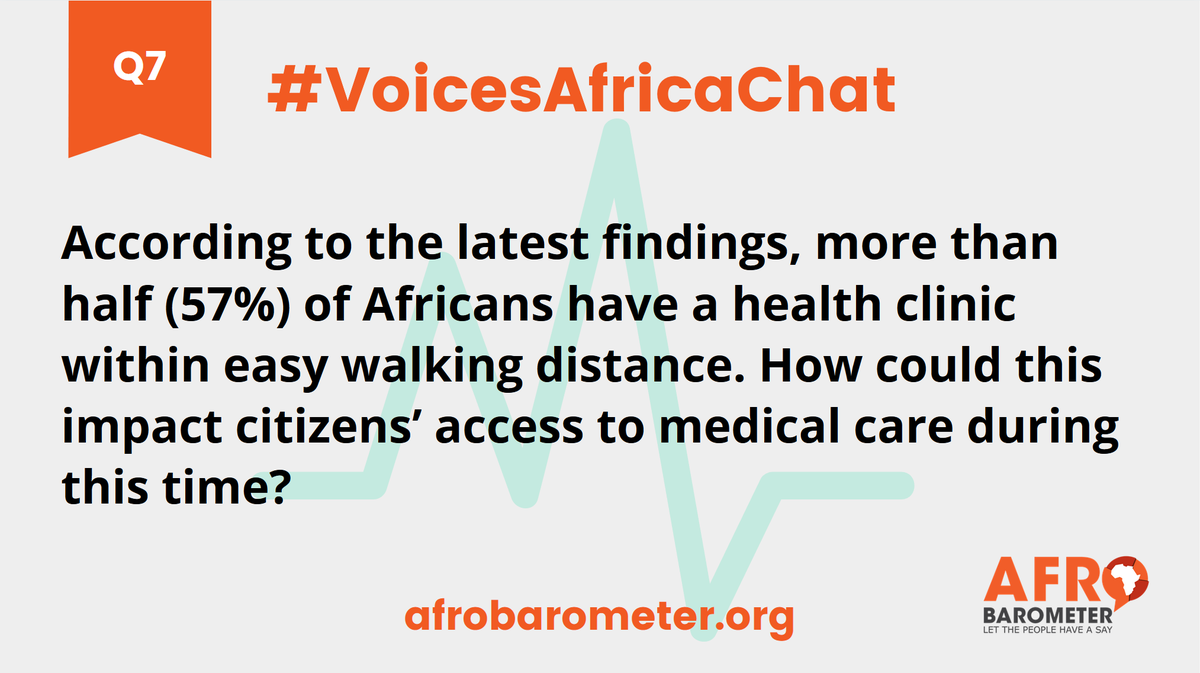
Q8. Almost half (45%) of respondents who had contact with a public health facility during the previous 12 months said they found it difficult to get the medical care they needed. How could governments solve this? @Gee_Skiti
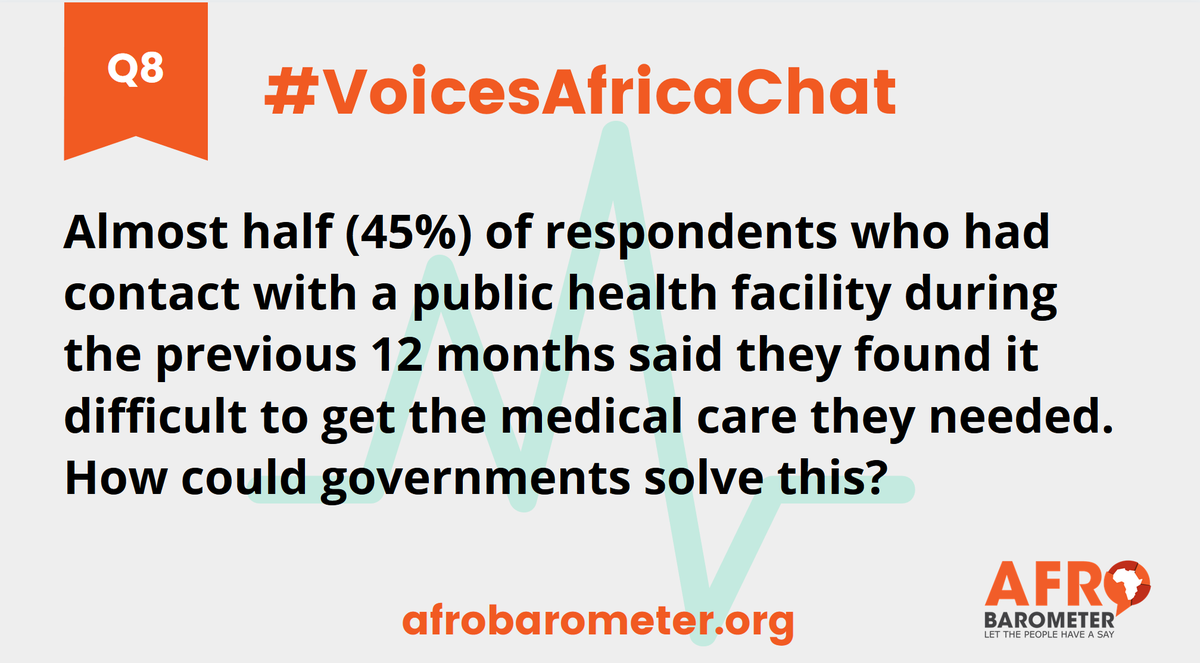
Q10. Among those who sought medical care during the previous year, about one in eight (13%) said they had to pay a bribe. Is that a lot? @Gee_Skiti
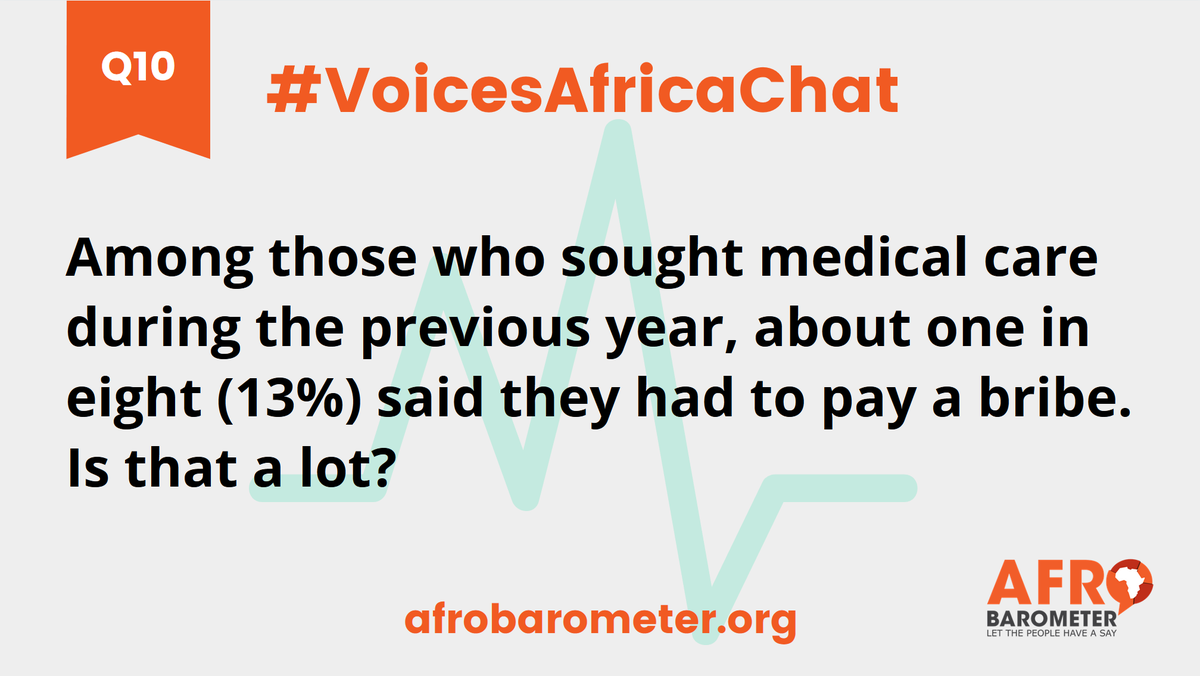
Q11. Overall, the findings show that governments received mixed scores for their performance on improving basic health services. How can they utilise this data? @Gee_Skiti
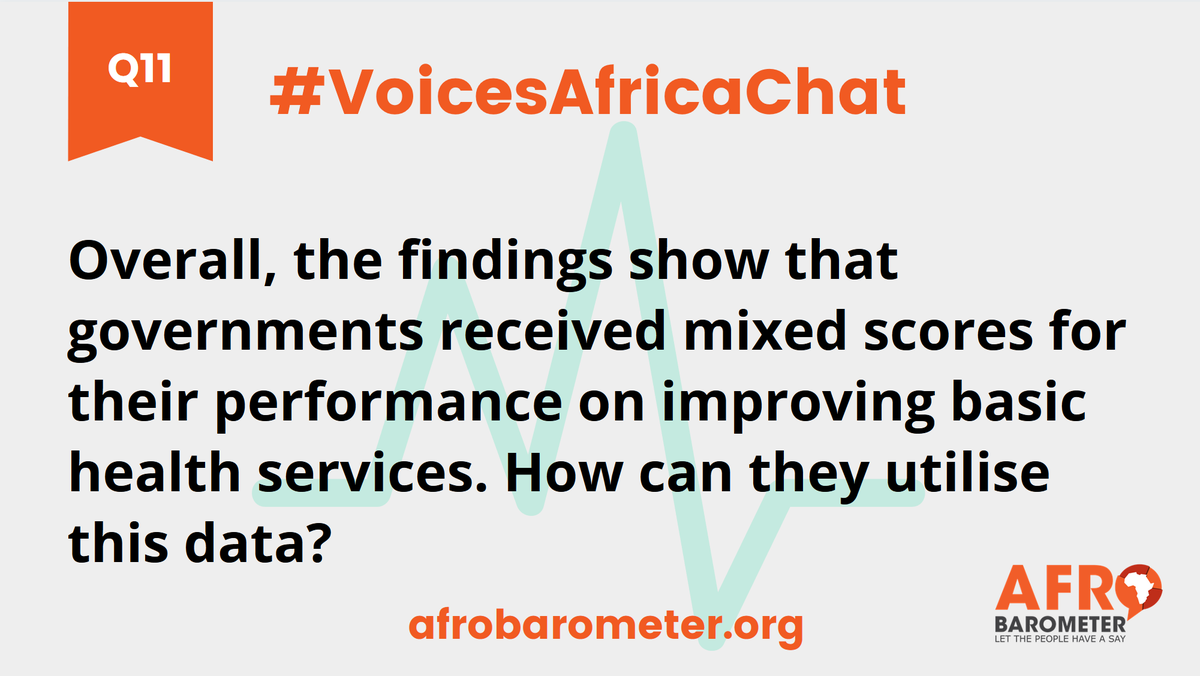
Q12. What are some of the reasons that people give their government’s positive 👍🏾 or negative ratings 👎🏾 on health care? @Gee_Skiti on health care? @Gee_Skiti
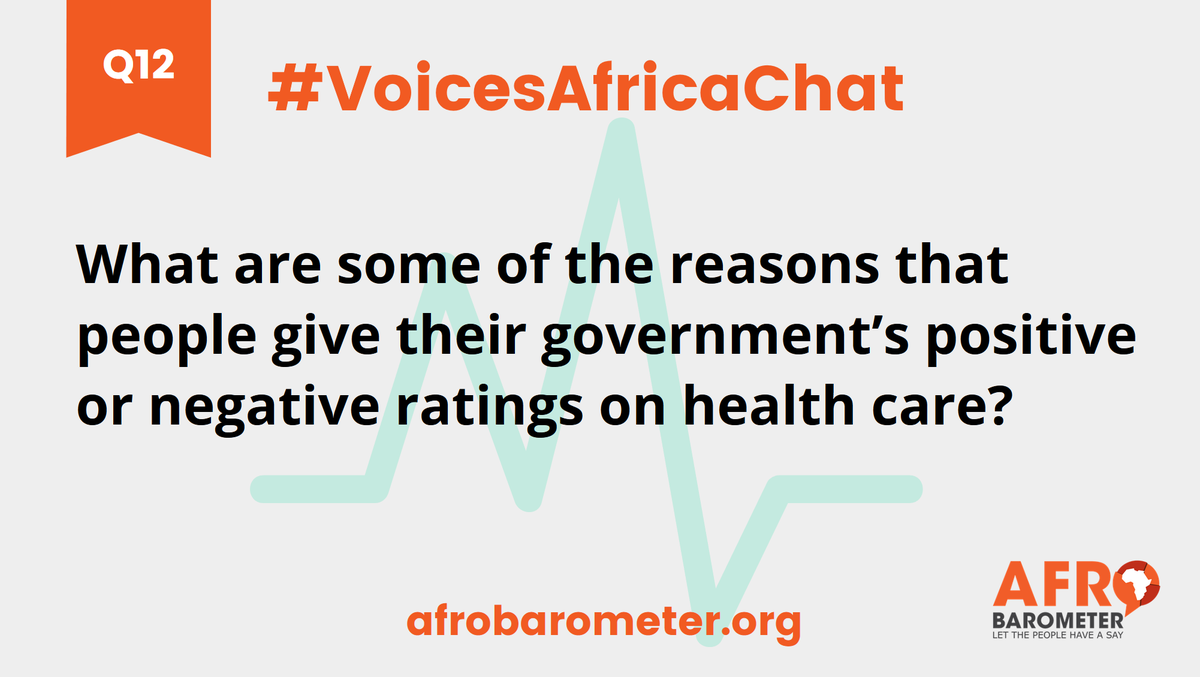
Q13: Do people think things are getting better or worse as far as being able to get medical care? @Gee_Skiti
#WorldHealthDay
